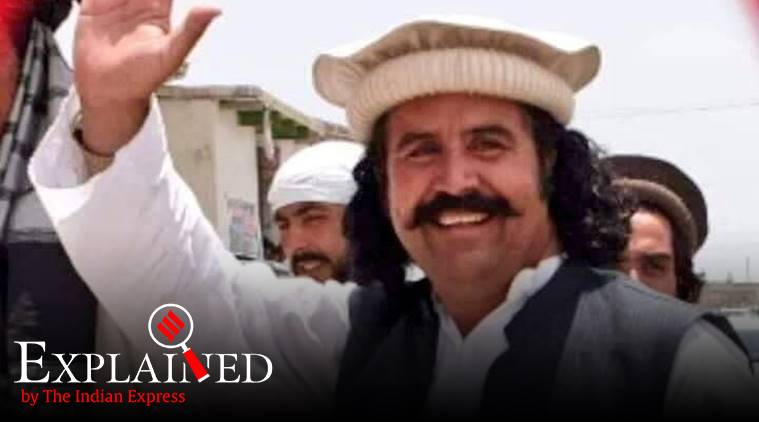Nirupama Subramanian: Murdered Pashtun belonged to Pakistan’s only party that openly challenges the Army
The PTM describes
itself as a non-violent movement that demands to be
treated equally with other citizens within the framework of
Pakistan’s constitution. The PTM anthem Da
Sanga Azadi Da zawana mo katal kegi (of what use is this freedom) has resonated among the Pashtun.
The party wants accountability from the most powerful institution in Pakistan
for putting FATA in the eye of a storm that continues to rage in Afghanistan,
for disappearances and the killings of civilians in targeted operations or as
collateral, and other violation of rights

On May 1, Sardar Muhammed Arif Wazir, a Pashtun political leader in Pakistan, was fatally wounded in a drive-by shooting by unidentified men as he stood outside his house in South Waziristan. With gunshot wounds in the head and neck, Wazir was moved to a hospital in Islamabad, where he succumbed to his injuries. Hhis death triggered an outpouring of grief and anger among the Pashtun in the North-West Frontier areas of Pakistan.
‘Dawn’ newspaper said
thousands gathered for his funeral in Wana, the main town of South Waziristan,
on May 4, despite COVID-19.
On May 5, there was another large gathering to protest the killing, and
protests in other towns. Wazir was part of the
Pashtun Tahafuz Movement (PTM), a group with wide support in what used to be
the Federally Administered Tribal Areas of Khyber Pakhtunkhwa province, in
particular in South and North Waziristan, the geographical centre of Pakistan’s
Afghanistan policy. Though the identity of Wazir’s killers is not known, the
PTM and its supporters blame the Pakistan Army and the ISI.
Mohsin Dawar, a prominent leader of the PTM, and a member of Pakistan’s Parliament, tweeted upon Wazir’s death that “Arif Wazir was murdered by ‘good terrorists’. Our struggle against their masters will continue.” The hashtag #StateKilledArifWazir began trending on social media soon after. The PTM is a strident critic of the Pakistan Army’s proxy war policy through jihadist groups and its extension, the shadow wars within the country. Just two years old as a political party, it is the only organised political force that now challenges the Pakistan Army openly.
Wazir, a 38-year-old
who had a large support base in South Waziristan, was an outspoken and vocal
critic of the security establishment. Just four days before he was shot, he had
been released on bail after being arrested on April 17 on hate speech charges for
allegedly making an “anti-Pakistan” speech on a visit to Afghanistan earlier in
the month.
According to the Human
Rights Commission of Pakistan (HRCP), Wazir had spoken in Afghanistan about the
impact of war on the lives of Pashtuns in Pakistan and Afghanistan, and the
need for unity in the Pashtun community. Over the last two years, according to
HRCP, he was arrested six times and in all, had spent 13 months in detention....
https://indianexpress.com/article/explained/sardar-muhammed-arif-wazir-murder-pashtun-tahafuz-movement-pakistan-army-6401803/Posts on Balochistan
Mukulika Banerjee - Remembering 'Frontier Gandhi'– Khan Abdul Ghaffar Khan
Bangladesh and the recovery of history
Famous article by Anthony Mascarenhas, former Assistant Editor, Morning News, Karachi:
GENOCIDE: Why the Refugees Fled (Sunday Times, London, June 13, 1971)
The Blood Telegram
Bangladesh 1971: the forgotten template of 20th century war - by Gita Sahgal
The UN & War Crimes Trials for Pakistani Soldiers in Bangladesh 1971–1974
The Manifesto of the Anti-Fascist Intellectuals: Written by Benedetto Croce (1925)
Famous article by Anthony Mascarenhas, former Assistant Editor, Morning News, Karachi:
GENOCIDE: Why the Refugees Fled (Sunday Times, London, June 13, 1971)
The Blood Telegram
Bangladesh 1971: the forgotten template of 20th century war - by Gita Sahgal
The UN & War Crimes Trials for Pakistani Soldiers in Bangladesh 1971–1974
The Manifesto of the Anti-Fascist Intellectuals: Written by Benedetto Croce (1925)
